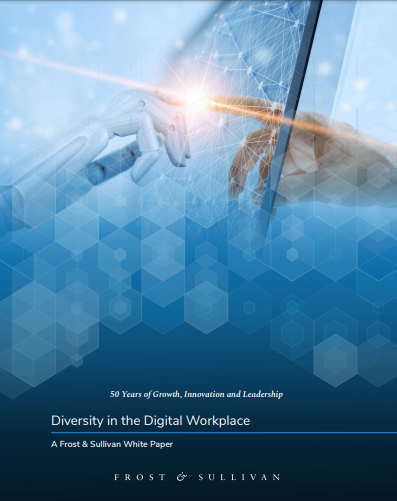How to make yourself irreplaceable in tomorrow’s job market
What skills do IT professionals need to help them weather tech disruption in the workplace?


Our approach to work has changed dramatically in recent years with more people working remotely or flexibly, the rise of the gig economy and digital nomads who want greater variety in their careers as well as a better work-life balance. Change that continues apace.
"Every day in recruitment we see working culture evolve. This has been especially notable with the influx of gig economy roles and the so-called 'slashies', who work multiple roles," says Chris Adcock, managing director of recruitment firm Reed Technology.
"There was once a time when employees had a 'job for life'. That's over and we're now living in a time when a 'career for life' may start to disappear too... many candidates are looking to futureproof their careers, making sure they remain indispensable by upskilling or side-stepping into a new industry."
Industries are moving and evolving at speed, spurred on by technical advances that are expected to make some jobs disappear, while creating new roles we can't yet envision. Artificial intelligence (AI) is already changing the landscape according to Harvey Nash and KPMG's latest CIO Survey, AI and automation is up 17% as a boardroom priority and many roles, both within and outside the IT department, are feeling the effects. But this isn't a case of "machines stealing our jobs", it's simply part of a bigger evolution that is seeing changes in the way we work and the skills we use.
The technology sector is in a state of constant flux, something that is demonstrated by the evolution of IT roles in recent years and the growing influence of digitalisation across businesses. As a result, the number and type of jobs that will involve technology in the future are expected to expand as more organisations carry out projects like digital transformation.
RELATED RESOURCE

Diversity in the digital workplace
The future of work is a collaborative effort between humans and robots
Future jobs
"Experts predict that by 2025 around two million new roles will be created around workplace AI," notes Sam Hassani, Chief Technology Officer at Unily, which recently published a report titled Future of the Workplace 2030+ in partnership with trend forecaster Kjaer Global. "[All] workers will have to become more comfortable and fluent with advanced technologies becoming a part of their everyday roles."
Some of these technologies, such as robotics, AI and machine learning, are rewriting the roles of work and skills. While, they may be making some current positions obsolete, they're also creating new workplace needs.
Get the ITPro daily newsletter
Sign up today and you will receive a free copy of our Future Focus 2025 report - the leading guidance on AI, cybersecurity and other IT challenges as per 700+ senior executives
"Some roles will go as IT automates itself, but at the same time many new roles will be created," says Albert Ellis, CEO of tech recruiter Harvey Nash. "What we're seeing at the moment in the market is a particular demand for change managers, project management-based roles focused on automating manual or labour-based processes.
"[But] there will continue to be a huge need for coders, software writers, data scientists, analysts, design engineers, digital transformation specialists -- the list goes on. Even if some of these roles become automated themselves, there will always be a need for human IT specialists designing, monitoring, testing and validating what the AI is doing."
Recruiters envision that in the future demand will be high for candidates with mobile, front-end development, cloud, cybersecurity and storage skill sets. There's still an element of the unknown, Hassani points out, as "it's estimated that around 60 per cent of future jobs don't exist yet,".
The rise of the generalist
"Technical skills in emerging areas will grow in demand, however few people will be experts in these areas; even those who have completed a computer science degree are unlikely to have a wealth of practical, hand-on experience in these areas," explains Daniel Kroening, a professor of computer science at the University of Oxford.
"As a result there is a growing trend in the technology sector to look for professionals who are 'generalists', with a solid understanding of mathematics, data analytics or security and can adopt and learn specific skills as a company transforms," he notes.
Clearly an understanding of technology will be key to a strong skill set in tomorrow's job-hunting market, but Adcock advises candidates not just to focus on technical skills, but also to "align themselves with other proven human skill sets and aptitude in important areas".
For instance, Reed's State of Skills survey shows that employers believe problem-solving skills are of paramount importance, with deductive reasoning and critical thinking ranked by many as highly valued skills.
"We know from our research that creativity and problem-solving are two human talents which are essential to businesses taking the next step, and as such will be in great demand."
RELATED RESOURCE

Diversity in the digital workplace
The future of work is a collaborative effort between humans and robots
How to stay in demand
In order to stay in demand in the future, recruiters recommend IT professionals continuously evolve their skills, staying up to date with the latest trends in their chosen field, but also being open to learning new skills. As Hassani puts it: "Never stop wanting to learn."
"Those who want to learn from people around them, and those that find new ways to continue their own growth, will thrive in the future on the basis that they will never take the norm as enough. With innovation in AI guaranteed to remove repetitive admin tasks, it's important to be creative and see creation at the heart of everything you do. It will then be those who want to learn and push boundaries who will be successful in the future," he concludes.
Keri Allan is a freelancer with 20 years of experience writing about technology and has written for publications including the Guardian, the Sunday Times, CIO, E&T and Arabian Computer News. She specialises in areas including the cloud, IoT, AI, machine learning and digital transformation.
-
 Bigger salaries, more burnout: Is the CISO role in crisis?
Bigger salaries, more burnout: Is the CISO role in crisis?In-depth CISOs are more stressed than ever before – but why is this and what can be done?
By Kate O'Flaherty Published
-
 Cheap cyber crime kits can be bought on the dark web for less than $25
Cheap cyber crime kits can be bought on the dark web for less than $25News Research from NordVPN shows phishing kits are now widely available on the dark web and via messaging apps like Telegram, and are often selling for less than $25.
By Emma Woollacott Published